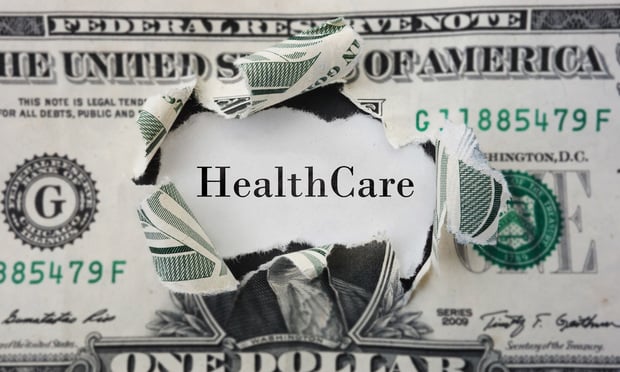With little hope of getting a full repeal of the Affordable Care Act through Congress, theTrump administration is instead trying to chipaway at the landmark health law’s foundation.
|The latest attempt came on Thursday, when the Department ofLabor announced a new proposed rule to allow small businesses and self-employed people toband together to purchase insurance plans that are not subject tomany of the Obamacare requirements.
|Currently, self-employed people, or sole proprietors, can buyplans as individuals through the ACA exchange. By allowing them tosign up for group plans made up of other individuals, the Trumpadministration argues that they will be able to get lowerprices.
|The plans will also likely be cheaper because they will beexempt from the ACA requirement that insurance policies cover 10“essential” benefits, such as maternity care and mental healthtreatment. Republicans have long argued that people should be ableto purchase such “skinny” plans that are tailored morespecifically to their individual needs.
|A number of trade groups, including the National RestaurantAssociation and the National Retail Federation, came out in supportof the rule. Businesses in those industries have traditionally hadmany low-wage employees who they do not provide with insurance.
|While Republicans frame the new rule as a way to offer peoplecheaper alternatives to ACA plans, Democrats view it as a way toundermine the ACA market by allowing the healthiest people to optout. The new rule, combined with the repeal of the individualmandate that was included in the tax bill passed last month, couldresult in the ACA marketplace being dominated by older, sickerpatients, leading to further premiums increases.
|Assuming the new rule goes into effect, however, certain ACAregulations will still apply to the new plans. Plans will not beable to reject or charge customers more based on pre-existingconditions.
|Larry Levitt, who heads up health research at the Kaiser FamilyFoundation, tweeted that the maintaining protections forpre-existing conditions in the new plans will “mitigate the extentto which these plans destabilize the current insurance market.”
|However, he added, “I have no doubt that (insurers) would findclever ways of cherry picking healthier people implicitly -- e.g.,based on what benefits they cover.”
|So far, the efforts to undermine the ACA have not succeeded.Despite dramatically cutting spending on the marketing of ACAplans, shortening the enrollment period and repealing therequirement to buy insurance, ACA sign-ups were only slightly lowerin the enrollment period that just ended than they were last year,with roughly 8.8 million enrollees.
|Complete your profile to continue reading and get FREE access to BenefitsPRO, part of your ALM digital membership.
Your access to unlimited BenefitsPRO content isn’t changing.
Once you are an ALM digital member, you’ll receive:
- Critical BenefitsPRO information including cutting edge post-reform success strategies, access to educational webcasts and videos, resources from industry leaders, and informative Newsletters.
- Exclusive discounts on ALM, BenefitsPRO magazine and BenefitsPRO.com events
- Access to other award-winning ALM websites including ThinkAdvisor.com and Law.com
Already have an account? Sign In
© 2024 ALM Global, LLC, All Rights Reserved. Request academic re-use from www.copyright.com. All other uses, submit a request to [email protected]. For more information visit Asset & Logo Licensing.








